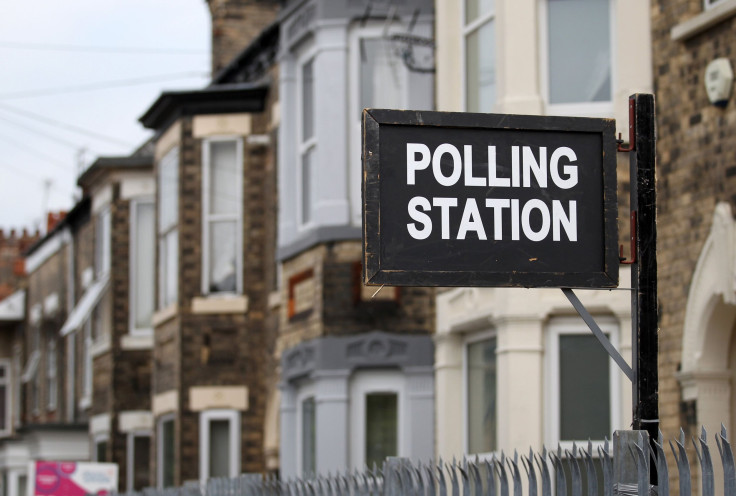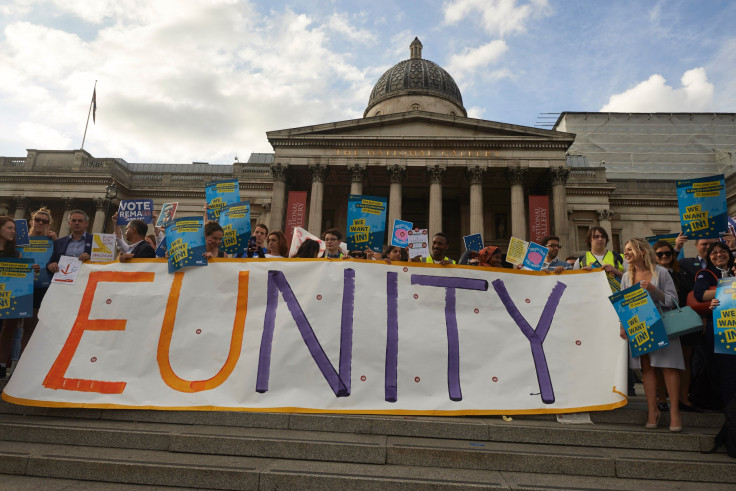What Is The Brexit? Key Issues Explained, How To Get Results And Everything Else You Need To Know

After absorbing months of campaigning, voters in the U.K. are headed to the polls Thursday to decide whether to remain in the European Union. Amid tight polls with only a day to go before voting, here’s everything you need to know about the vote, the issues driving both sides and the economic implications.
What is Brexit? The popularity of combining celebrity couple names has crossed into the realm of European politics. Brexit is a combination of “Britain” and “exit” and has become the shorthand name for Thursday’s referendum. The official question voters will be asked is: “Should the United Kingdom remain a member of the European Union or leave the European Union?” This is the first vote of its kind in the history of the economic and political bloc in its modern form.
Why is the vote happening? The U.K. and the EU have had a rocky relationship in recent years. The U.K. joined the EU in 1973 and today 73 members of the European Parliament hail from the U.K. Prime Minister David Cameron promised to hold a referendum on U.K. membership in the EU if he was re-elected in 2015 and he has kept his word. Both the U.K. Independence Party (UKIP) and Cameron’s own Conservative Party have pushed for the vote.

Who gets to vote? While the deadline to register to vote has already passed, anyone registered to vote in the U.K. is eligible to take part in the referendum. Commonwealth citizens living in the U.K. as well as Gibraltar, British citizens living overseas who have registered to vote in the last 15 years and Irish citizens who were born in Northern Ireland are all eligible to cast a ballot.
While voting by post and proxy are both possibilities, budget airline Ryanair ran a “Fly Home to Vote Remain” sales campaign (the airline supports Britain staying in the EU). “[The] seat sale proved extremely popular, so much so that we extended it for 24 hours,” Ryanair told International Business Times in an email.
What has the campaign looked like and what are the issues? Campaigning has been intense over the last several months. The “leave” camp has argued that the referendum presents the opportunity for Britain to take back control it has lost in the large EU bureaucracy and has highlighted the amount of money sent every week to Brussels, the capital of the EU. Immigration has also been in the spotlight with the “leave” camp arguing, “We will control our borders.” The “leave” camp has argued Britain would have greater control over its own economy outside of the EU.
The 'IN' campaign have no plan for controlling immigration #VoteLeave #bbcdebatehttps://t.co/2c7GnZk0ds
— Vote Leave (@vote_leave) June 21, 2016
The “remain” camp has argued that the U.K. is “stronger, safer and better off in Europe.” While admitting to problems with the EU, the “remain” camp has focused its energy on the economic argument, stressing that British jobs and trade are tied to the EU and that the EU adds billions of dollars to the British economy every year. Staying in the EU is the status quo choice that many business executives have called for.
Who are the biggest “leave” and “remain” supporters? From retired soccer player David Beckham (“remain”) to British-born American TV host John Oliver (“remain”) and actress Elizabeth Hurley (“leave”), celebrities, CEOs and political leaders have been taking stands on which way they want to the vote to go.
On the political front, Cameron is leading the “remain” side while UKIP party leader Nigel Farage has been rallying the “leave” side. Business leaders from Coca-Cola to JPMorgan Chase, fearing economic implications of Britain outside of the EU, have come out urging voters to choose “remain.”
What happens if the U.K. votes to leave? The short answer is no one really knows. If the U.K. does vote to leave, it would be the first country to do so. Experts estimate it could take several years for the country to work out new trade relations with the EU. The U.K. is the world’s fifth-largest economy and many businesses use it as a jumping-off point to the Europeanwide market. That has economists and business owners worried about trade arrangements, currency fluctuations and slower economic growth in the U.K. If the “leave” vote wins, economists have predicted the British pound could weaken against the dollar. The Bank of England has warned that uncertainty over the referendum is the “largest immediate risk” to financial markets around the globe.
Is the vote binding? No, it is not legally binding. Parliament will still have to pass laws for the U.K. to exit the EU, but it is unlikely Parliament would go against the people’s decision. There is no minimum turnout needed, and to win the vote a simple majority is needed.
When will we know the results? Polls will close at 10 p.m. GMT (6 p.m. EDT)and local results will be declared as they come in. Around 4 a.m. local time it should start to become clear which side has the lead, the BBC reported. The final result will be announced at the Manchester Town Hall.
© Copyright IBTimes 2025. All rights reserved.






















